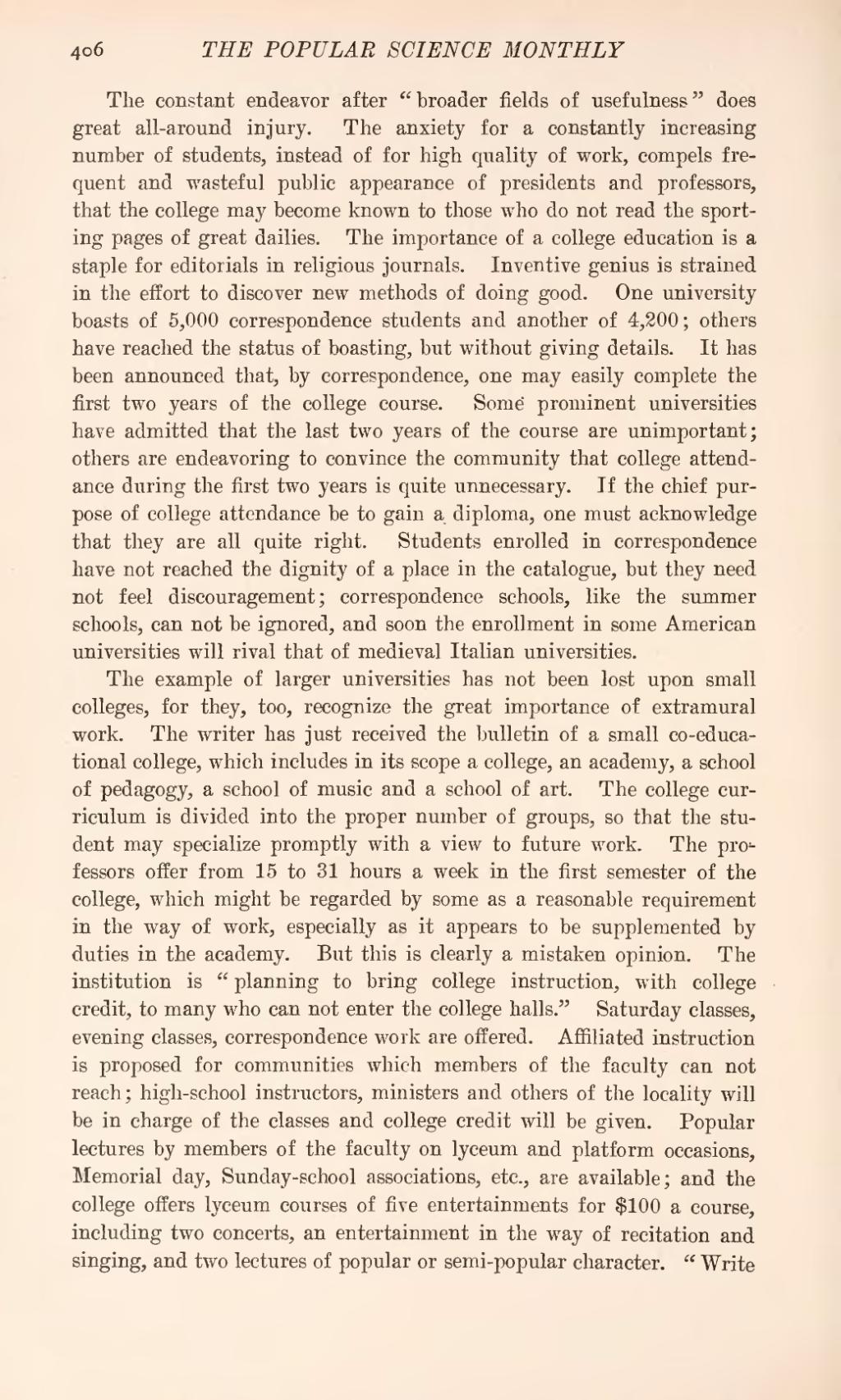The constant endeavor after "broader fields of usefulness" does great all-around injury. The anxiety for a constantly increasing number of students, instead of for high quality of work, compels frequent and wasteful public appearance of presidents and professors, that the college may become known to those who do not read the sporting pages of great dailies. The importance of a college education is a staple for editorials in religious journals. Inventive genius is strained in the effort to discover new methods of doing good. One university boasts of 5,000 correspondence students and another of 4,200; others have reached the status of boasting, but without giving details. It has been announced that, by correspondence, one may easily complete the first two years of the college course. Some prominent universities have admitted that the last two years of the course are unimportant; others are endeavoring to convince the community that college attendance during the first two years is quite unnecessary. If the chief purpose of college attendance be to gain a diploma, one must acknowledge that they are all quite right. Students enrolled in correspondence have not reached the dignity of a place in the catalogue, but they need not feel discouragement; correspondence schools, like the summer schools, can not be ignored, and soon the enrollment in some American universities will rival that of medieval Italian universities.
The example of larger universities has not been lost upon small colleges, for they, too, recognize the great importance of extramural work. The writer has just received the bulletin of a small co-educational college, which includes in its scope a college, an academy, a school of pedagogy, a school of music and a school of art. The college curriculum is divided into the proper number of groups, so that the student may specialize promptly with a view to future work. The professors offer from 15 to 31 hours a week in the first semester of the college, which might be regarded by some as a reasonable requirement in the way of work, especially as it appears to be supplemented by duties in the academy. But this is clearly a mistaken opinion. The institution is "planning to bring college instruction, with college credit, to many who can not enter the college halls." Saturday classes, evening classes, correspondence work are offered. Affiliated instruction is proposed for communities which members of the faculty can not reach; high-school instructors, ministers and others of the locality will be in charge of the classes and college credit will be given. Popular lectures by members of the faculty on lyceum and platform occasions, Memorial day, Sunday-school associations, etc., are available; and the college offers lyceum courses of five entertainments for $100 a course, including two concerts, an entertainment in the way of recitation and singing, and two lectures of popular or semi-popular character. "Write
